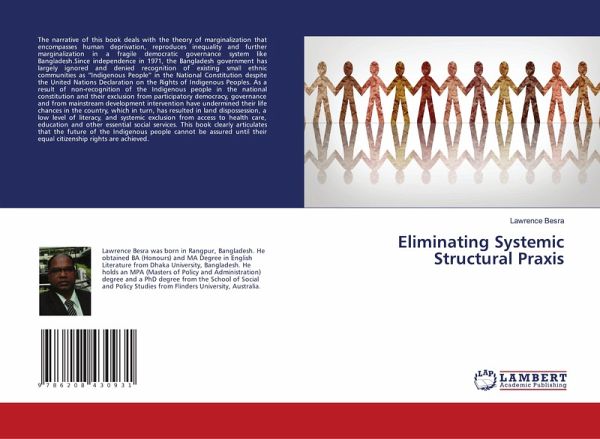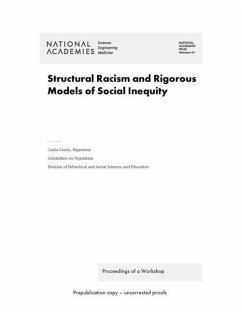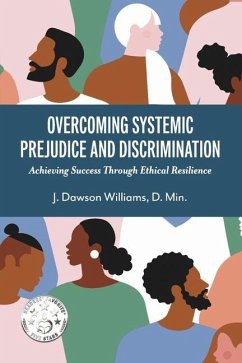
Eliminating Systemic Structural Praxis
Versandkostenfrei!
Versandfertig in 1-2 Wochen
29,99 €
inkl. MwSt.

PAYBACK Punkte
15 °P sammeln!
The narrative of this book deals with the theory of marginalization that encompasses human deprivation, reproduces inequality and further marginalization in a fragile democratic governance system like Bangladesh.Since independence in 1971, the Bangladesh government has largely ignored and denied recognition of existing small ethnic communities as "Indigenous People" in the National Constitution despite the United Nations Declaration on the Rights of Indigenous Peoples. As a result of non-recognition of the Indigenous people in the national constitution and their exclusion from participatory de...
The narrative of this book deals with the theory of marginalization that encompasses human deprivation, reproduces inequality and further marginalization in a fragile democratic governance system like Bangladesh.Since independence in 1971, the Bangladesh government has largely ignored and denied recognition of existing small ethnic communities as "Indigenous People" in the National Constitution despite the United Nations Declaration on the Rights of Indigenous Peoples. As a result of non-recognition of the Indigenous people in the national constitution and their exclusion from participatory democracy, governance and from mainstream development intervention have undermined their life chances in the country, which in turn, has resulted in land dispossession, a low level of literacy, and systemic exclusion from access to health care, education and other essential social services. This book clearly articulates that the future of the Indigenous people cannot be assured until their equal citizenship rights are achieved.














